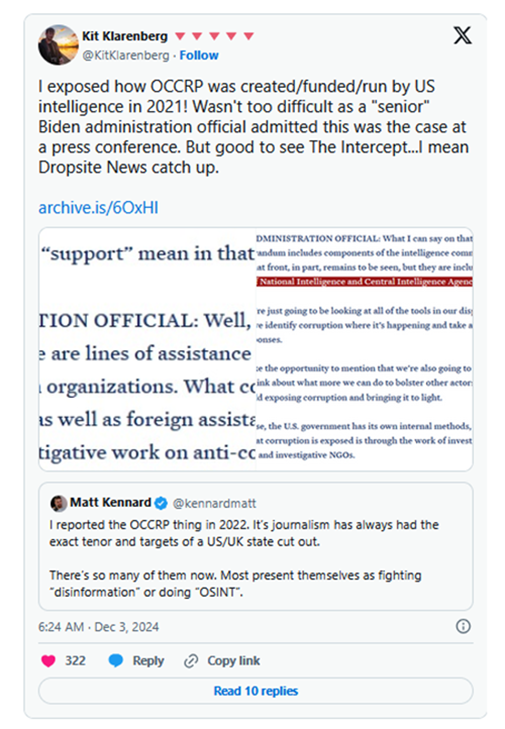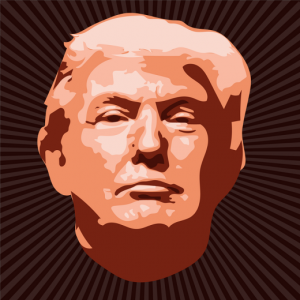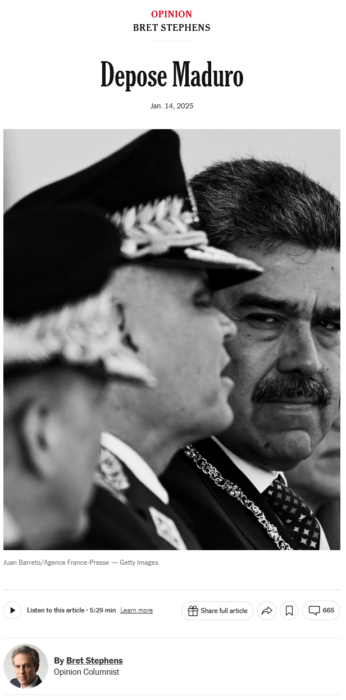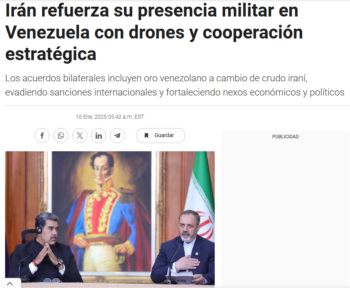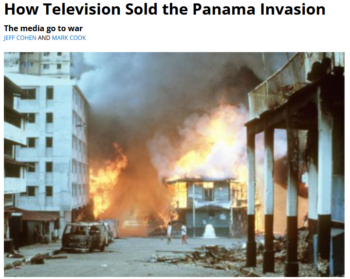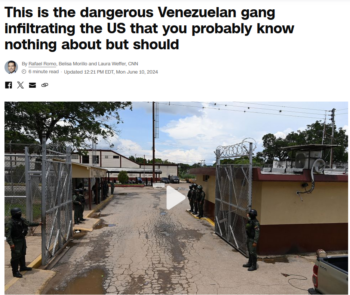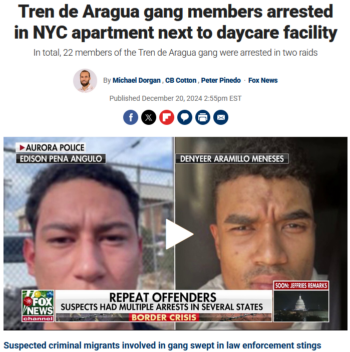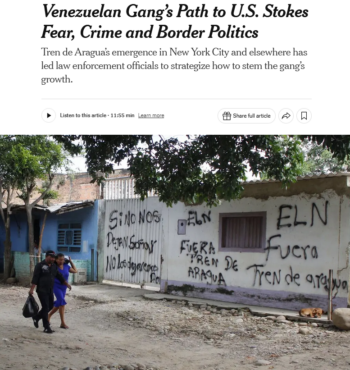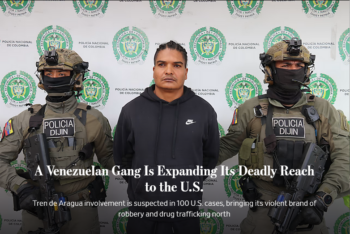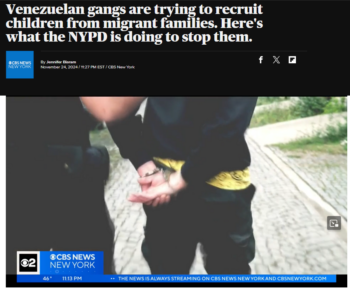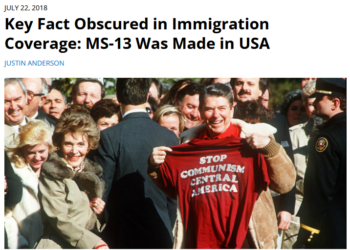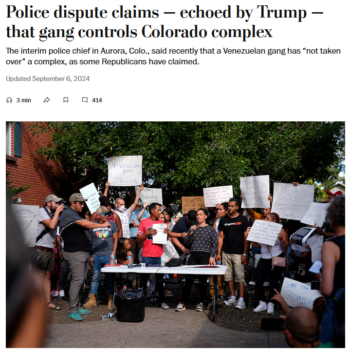
These top Washington think tanks are lobbying lawmakers for sadistic sanctions on some of the hemisphere’s poorest countries while raking in millions from corporations and arms makers.
Sanctions are a form of hybrid warfare that harms or even kills the target populations at little cost to the country imposing them. In Latin America alone, US sanctions (correctly known as “unilateral coercive measures”) have killed at least 100,000 Venezuelans. The US blockade of Cuba has been so destructive that one in ten Cubans have left the country. Sanctions have similarly deprived Nicaraguans of development aid worth an estimated $3 billion since 2018, hitting projects such as new water supplies for rural areas.
Who formulates these devastating sanctions, covers up their real effects, works with politicians to put them into operation and promotes them in corporate media? In a perverse contrast with the poor communities hit by these policies, those doing the targeting are often well-paid employees of multi-million-dollar think tanks, heavily funded by the US or other Western-aligned governments and in many cases by arms manufacturers.
A study in corruption: top think tank lobbyists and their funders
Chief among these groups is the Wilson Center, which claims to simply provide policymakers with “nonpartisan counsel and insights on global affairs.” Boasting a $40-million budget, a third of which comes from the US government, the organization is headed by the former Administrator of USAID, Amb. Mark Green.
In 2024, the Wilson Center boosted its efforts to meddle in Latin America with the creation of the “Iván Duque Center for Prosperity and Freedom,” naming its newest initiative for the wildly unpopular former Colombian president largely remembered for his violent crackdown on students protests, his obsessive focus on regime change in Venezuela, and intentionally crippling the 2016 peace deal meant to end decades of civil war in Colombia.
While Duque has not produced much in the way of scholarship since joining the Wilson Center, he is living his best life at Miami nightclubs, where he’s frequently seen in as a guest DJ or regaling partiers with renditions of Spanish language rock hits.

As Mark Green explained, the Iván Duque Center “is a way for us to reaffirm both the importance of the Western Hemisphere in American foreign policy and the promise that democracy and market-centered economics must play in the region’s future.” When it comes to nations that oppose US foreign policy in the region, it’s also a way to fund their most vocal critics, who receive a stipend of $10,000/month upon being named Wilson Center fellows.
Other Duque fellows include right-wing Venezuelan putschist Leopoldo López, who graduated from Kenyon College and Harvard Kennedy School, two schools closely linked to the CIA, before attempting to orchestrate coups against the Venezuelan government in 2002, 2014, and 2019.
Also on the Wilson Center payroll is former US ambassador to Venezuela William Brownfield, another regime change fanatic. Six years ago, when Caracas was undergoing its heaviest assault from US sanctions, Brownfield called for the US government to go even further, claiming that because Venezuelans “already suffer so much… that at this point maybe the best resolution would be to accelerate the collapse” of their country, while freely admitting that his preferred outcome would likely “produce a period of suffering of months or perhaps years.”
The Wilson Center is far from alone in seeking to depose the authorities in Caracas. Another think tank, the Atlantic Council – which receives around $2 million annually from the US government and a similar amount from Pentagon contractors – has assembled a 24 member-strong Venezuela Working Group featuring a former State Department officials, a former member of the CITGO board, and multiple members of the so-called “interim Venezuelan government” which has been accused of stealing over $100 million in USAID funds.
While the group ostensibly “informs policymakers in the United States, Europe, and Latin America on how to advance a long-term vision and action-oriented policies to foster democratic stability in Venezuela” and “promotes the restoration of democratic institutions in Venezuela,” in practice this means it’s fundamentally dedicated to ending the Maduro government.
The Atlantic Council – a de facto influence peddling operation that functions as the unofficial think tank of NATO in Washington – aims for a similar result in Nicaragua. In an 2024 article titled, “Nicaragua is consolidating an authoritarian dynasty – Here’s how US economic pressure can counter it,” Atlantic Council researcher Brennan Rhodes called for “new punitive economic measures” on the Sandinista government which would heavily damage Nicaragua’s trade with the US, its main export market. The article betrayed no concern for the inevitable effects on hundreds of thousands of Nicaraguans who rely on this trade, and whose earnings are likely a fraction of the average Atlantic Council employee.
Among the oldest think tanks dedicated to US global dominance is the Council on Foreign Relations (CFR), which boasts a 100-year “independent, nonpartisan” history of interfering in other countries. A review of its regularly-posted updates on Cuba shows the CFR well aware that the country’s economy, hammered by six decades of economic blockade by the US, had reached a new crisis point after Biden broke his promises to relieve intensified Trump-era sanctions. Yet in a 2021 CFR forum on how to bring down the Cuban government, US-based lawyer Jason Ian Poblete argued that the screw should be twisted still further: “We should bring all tools of state, every single one, to bear on this – not just sanctions.”
Joining the Atlantic Council and the CFR in meddling in the affairs of the US’ southern neighbors is the Center for Strategic and International Studies (CSIS), which claims it’s “dedicated to advancing practical ideas to address the world’s greatest challenges.” All three groups are listed on the Quincy Institute’s page showing the “Top 10 Think Tanks That Receive Funding from Pentagon Contractors.” Led by its Americas director, Ryan Berg, CSIS maintains active programs calling for sanctions in Venezuela, Cuba, and Nicaragua. The group regularly holds events featuring US-backed opposition figures such as Venezuelan María Corina Machado and Nicaraguans Félix Maradiaga and Juan Sebastián Chamorro.
Collectively, these groups dominate the US information sphere, saturating mainstream airwaves with complaints about the “authoritarian” socialist-leaning governments and demands for their ouster. On the off-chance that an official from one of the major think tanks is unavailable to comment, there are a number of smaller organizations ready to plug the gap.
Enduring demand for deprivation
One of the most vocal Beltway think tanks on Latin American affairs is the Inter-American Dialogue (“leadership for the Americas”), which works alongside CSIS and which is also heavily funded by arms contractors and the US government. Recently, as The Grayzone reported, CSIS’s Berg collaborated with the Dialogue’s Manuel Orozco – who moonlights as the Central America and the Caribbean chair of the US government’s Foreign Service Institute – to try to cut Nicaragua’s access to one of its only remaining sources of development loans.
The Dialogue was assisted in this by two more think tanks. One is the Organized Crime and Corruption Reporting Project (OCCRP), which bills itself as “one of the largest investigative journalism organizations in the world,” and which receives a full half of its budget from the US government. OCCRP works with similarly-funded Transparency International to engage in regime change operations by digging up dirt on foreign administrations targeted by Washington.
Another group heavily involved in the sanctions industry is the Center for Global Development, whose name might seem ironic given that it provides a platform for those promoting deadly economic coercion. Its $25 million annual budget is funded mainly from sources such as the Gates Foundation, as well as several European governments. One of its directors, Dany Bahar, recently called for intensified sanctions against the Venezuelan government to stamp out the “temporary economic improvements” that the country is currently enjoying.
Not all of the shady organizations seeking to impoverish Latin Americans in the name of hegemony are based in the US, however. Britain’s Chatham House, which relies heavily on the UK and US governments as well as arms manufacturers for its £20 million annual budget, also calls for the “restoring of democracy” in Venezuela, and often gives platforms to opponents of the governments in Caracas and Managua. Though skeptical of the efficacy of sanctions on Venezuela, it nevertheless concluded in Jan. 2025 that “restoring oil and gas sanctions” would be “logical” as long as the bans were part of “a broader diplomatic, coordinated multinational policy with specifically defined objectives.” The few criticisms it’s produced of the US embargo on Cuba have centered largely on its failure to affect regime change.
Only one longstanding Beltway think tank, the Brookings Institution, has been willing to platform a slightly more skeptical view of sanctions. A 2018 op-ed from a Venezuelan economist published by Brookings explicitly counseled that sanctions on Venezuela “must be precise in order to spare innocent Venezuelans.” The year prior, Brookings argued that Trump’s sanctions against Cuba were unlikely to “put much of a near-term dent in the Cuban economy… [nor] reduce the influence of the armed forces,” but would have “a disproportionately negative impact on Cuba’s emerging private sector and on non-military employment in linkage industries—not to mention restricting Americans’ right to travel.” Broadly speaking, however, Brookings largely adheres to the trans-Atlantic consensus which demands the overthrow of the countries that former Trump National Security Advisor John Bolton once smeared as the “troika of tyranny.”
Lobbyists by another name
Think tanks operate in a privileged space, gaining credibility from their links with the academic world while ensuring that their policymaking is closely geared to imperial needs. In the US alone there are more than 2,200 such organizations, some 400 of which specialize in foreign affairs. In recent years, they’ve become ubiquitous, with one-third of witnesses to the House Foreign Affairs Committee coming from think tanks – 80% of whom are paid by what Responsible Statecraft labels defense contractor “dark money.”
These organizations’ collective groupthink on sanctions – particularly on those targeting Venezuela – give the lie to the “independence” they all claim. Political scientist Glenn Diesen opens his recent book, The Think Tank Racket, by noting that these institutions’ “job is to manufacture consent for the goals of their paymasters.” He says that these “policymaking elites… confirm their own biases rather than conduct real debates.” Once their work is done, they “retire to expensive restaurants where they slap each other on the back.”
In an unusually self-critical piece explaining “Why Everyone Hates Think Tanks,” the Wilson Center’s Matthew Rojansky and the European Council on Foreign Relations’ Jeremy Shapiro explain that these organizations have become lobbyists by another name, whose donors simply want “veteran sharpshooters to fire their policy bullets.” As far back as 2006, journalist Thomas Frank observed that think tanks have “grown into a powerful quasi-academy with seven-figure budgets and phalanxes of ‘senior fellows’ and ‘distinguished chairs’.”
This business model is only one aspect of the “racket.” As Diesen points out, and as Colombia’s Iván Duque center proves, think tanks provide a revolving door where out-of-office or failed politicians and their advisers can continue to influence public policy – while collecting a fat paycheck, too.
The post Meet the DC Think Tanks Impoverishing Masses of Latin Americans first appeared on Dissident Voice.This post was originally published on Dissident Voice.
